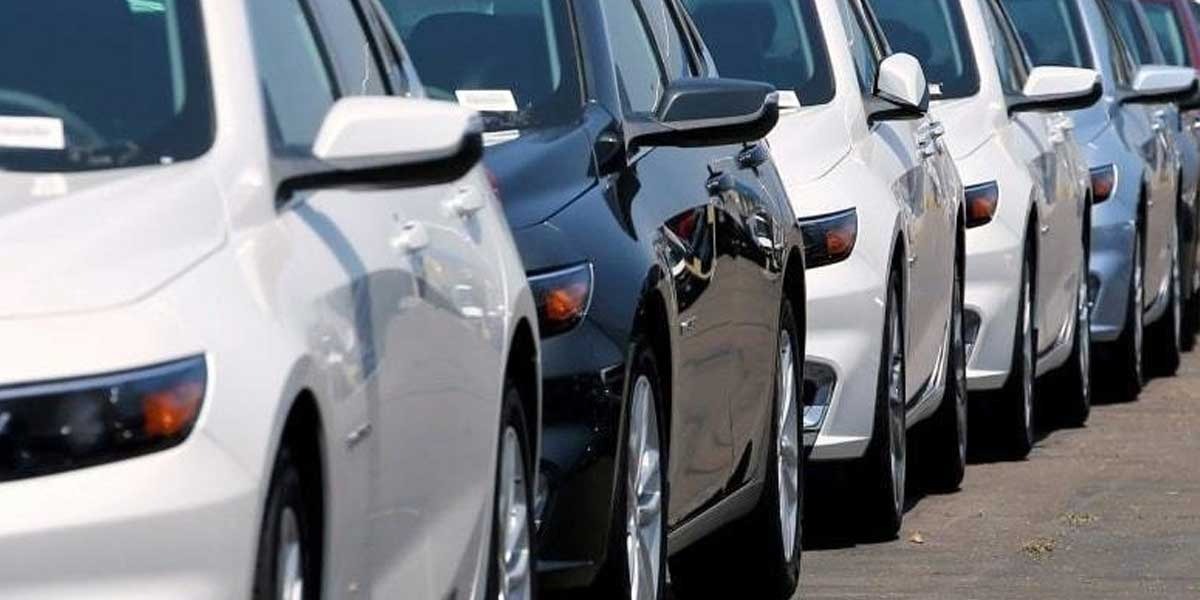Economic slowdown, higher interest rate dent car sales

KARACHI: The car sales in Pakistan remained flat in May clocking-in at 27,000 units due to higher car prices, economic slowdown and increase in the interest rates.
During May, the car sales showed a meager growth of 2 per cent on a month-on-month basis while the same were up 46 per cent on a year-on-year basis.
Hyundai Nishat posted strong numbers registering an increase of 33 per cent led by increase in the sales of Elantra, up 148 per cent and Sonata, up 37 per cent on a month-on-month basis.
Honda Atlas Car (HCAR) recorded the second highest increase of 11 per cent to 2,910 units in May led by an increase in the sales of City and Civic by 18 per cent on a month-on-month basis. Similarly, Indus Motors (INDU) also posted an increase of 2 per cent due to an increase in the sales of Corrolla and Yaris by 4 per cent.
Pak Suzuki (PSMC) reported a decline of 3 per cent to 12,212 units during the month. All variants of the company reported a decline on a monthly basis except for Wagon-R and Alto where sales were up by 24 per cent and 9 per cent respectively.
The analysts believe that Pakistan’s car industry will not have a better future owing to massive decline in the value of rupee against the dollar and a plethora of regulatory measures to contain demand.
Amid continuous decline of the local currency against greenback, a further hike in the prices of cars is imminent. “This would be the first time where we have seen the highest frequency (4x) of price increases by the auto industry in a fiscal year,” analysts at Insight Research said.
The major reasons are higher freight charges, abrupt movement in rupee followed by the launch of new model cars with lower localisation which further adds fuel to the price hike.
The localisation policy started in 1987 and continued till 2004, which required compulsory localisation for the automotive industry. However, automobile assemblers are still behind the required level of localisation.
Additionally, with the entry of new players such as KIA, PROTON, PUEGOT, HYUNDAI and MG, the industry has become fragmented and the share of volumetric sales has shrunk which is another reason for lower localisation.
In such a situation, it will be difficult for new players to achieve high localisation as older players are still far behind the required level. Moreover, local auto parts manufactures are sensitive to rupee/dollar parity as they are reliant on imported raw materials for production. Thus, making the end product exposed to rupee depreciation.
The analysts said that higher interest rate environment, local currency depreciation and auto financing hindrances may pose a threat to demand going forward, especially in the low segment cars under 1,000cc.
“These cars are likely to be impacted more as around 50 per cent are booked under auto financing. Even though auto financing has witnessed a significant surge in the last few months but now with significantly higher financing rate, we may witness a slowdown in auto financing,” the analyst said.
“With the complete ban of completely built unit (CBU) units along with the increased duties on import of completely knocked down (CKD) and semi knocked down (SKD) kits, it will eventually result in an increase in locally assembled car prices,” he added.
To control dollar outflows, the State Bank of Pakistan (SBP) under new regulations also reduced the auto financing tenure to 3 years from 5 for 1,000cc and 5 years from 7 years for vehicles upto 1,000cc, which will slowdown auto financing going forward.
Auto-financing in Pakistan accounts for around 25 per cent of industry’s total sales which depicts the inverse relationship of interest rates with car sales and auto financing. However, despite the sharp increase in the interest rate the trend did not continue in fiscal year 2022 amid pent up demand.
This trend might have a delayed impact which may end up affecting the sale by 25 per cent to 35 per cent in the next fiscal year. Resultantly, gross margins of the industry will take a hit due to lower fixed cost absorption.
Additionally, the rising petrol and diesel prices along with higher inflation, will put further pressure on volumetric sales.
During May, Millat Tractors (MTL) recorded an increase of 12 per cent while Al Ghazi Tractors (AGTL) recorded a decline of 8 per cent on a month-on-month basis.
Pakistan bike sales were down 2 per cent on a monthly basis while the same remained flat on a yearly basis in May taking the bike sales to 1.7 million units during the first 11 months of fiscal year 2022, down 4 per cent on a year-on-year basis.
Read More News On
Catch all the Business News, Breaking News Event and Latest News Updates on The BOL News
Download The BOL News App to get the Daily News Update & Live News.